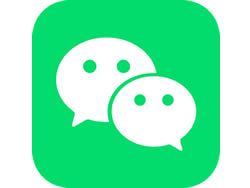Emily Jane Smith* says the events 30 years ago in Tiananmen Square made the Chinese Government realise a Western style of internet would threaten their control.
 It has been 30 years since the horrors of the Tiananmen Square massacre, an event that helped convince the ruling Communist Party that an open and free Internet would not work in China.
It has been 30 years since the horrors of the Tiananmen Square massacre, an event that helped convince the ruling Communist Party that an open and free Internet would not work in China.
If the protesting students were connected, it would have given activists an advantage.
The student-led pro-democracy movement may not have been thwarted by just the government.
After Tiananmen Square, the Communist Party raced to put in the first blocks of what is now referred to as China’s firewall, says James Griffiths, author of The Great Firewall of China.
“Tiananmen woke the Government up to the potential of the internet to be used in all social movements,” Griffiths said.
The Internet was in its infancy in the late 1980s.
The first email was sent in China two years before the Tiananmen Square massacre, but the Government was already pushing for it to be controlled.
“In the beginning, censorship was rudimentary,” Griffiths added.
“But it has improved to become a domestic technology sphere.”
While the “open and free” Western version of the Internet has grown into a large connected environment that has joined people across the world, China has successfully created its own closed off version of the Internet, an antonym to the West’s.
Large internet organisations like Facebook, WhatsApp and Google are blocked or ignored in favour of local alternatives WeChat, Weibo and Baidu.
According to Griffiths, the Chinese Government uses these platforms as a means of surveillance and censorship, which is why the country has been so successful at controlling the Internet.
“Users are being hypersurveilled by the Government on the platforms,” Griffiths said.
May 35th on Weibo and WeChat
Last week marked 30 years since troops fired on civilians and students on 4 June 1989, ending the demonstrations.
But even the date is censored on China’s internet.
Those wishing to discuss the event on China’s social media platforms instead speak in code and used the date May 35th.
Vicky Xiuzhong Xu is a reporter for The New York Times, based in Australia.
After growing up with China’s alternative Internet, she says “dancing around censorship” is common.
“There is keyword censoring, so if you mention Tiananmen or June 4, you are going to get censored,” Xiuzhong Xu said.
“I’ve seen posts on WeChat be deleted overnight, or survive and go viral, only to be deleted later.”
“So, if you want to have a ‘sensitive conversation,’ you try to get around it.”
The Mandarin words for “rice-bunny” phonetically sound like “me too”.
When discussions around the #MeToo movement became censored, people started using the emoji of a bunny instead.
“That’s how you dance around censorship,” Xiuzhong Xu said.
Now she says the algorithms and machine learning systems are becoming so intuitive, they even detect coded language used by those discussing “sensitive” topics.
China’s internet in Australia
Information that may encourage Chinese people to question their government is censored within the country.
For example, those growing up in China aren’t taught about Tiananmen Square or Xinjiang’s re-education camps.
In her reporting, Xiuzhong Xu has seen Chinese students in Australia “fact-check” historical events on Baidu — China’s version of Google.
At an event about Xinjiang’s re-education camps — internment camps operated by the Chinese Government — students used the Chinese search engine to seek information.
“Of course, they did not find anything,” Xiuzhong Xu said.
“They did not leave the Chinese Internet system, even after leaving China.”
With 1.2 million people in Australia who identify as having Chinese ancestry, Weibo and WeChat are commonly used in the country.
So much so that the Labor and Liberal parties advertised on the Chinese social media platforms during the recent Federal Election.
Although the platforms are used by the Chinese Government for censorship and surveillance, they are a growing presence in Australia’s political landscape.
The Labor Party held live question and answer sessions with users and ran campaign videos in Chinese languages.
“There are over a dozen Australian politicians who have used platforms like WeChat to reach voters,” Xiuzhong Xu added.
There has been concern about the spread of misinformation on these platforms during the last election, with Labor challenging the Liberal Party’s likely victory in Chisholm after allegations of dirty tactics on the platform.
“Politically, advertising is not monitored on WeChat like it is on Facebook,” Vicky Xiuzhong Xu said.
* Emily Jane Smith is an online producer for The Feed at SBS. She tweets at @e_janesmith.
This article first appeared at www.sbs.com.au.



